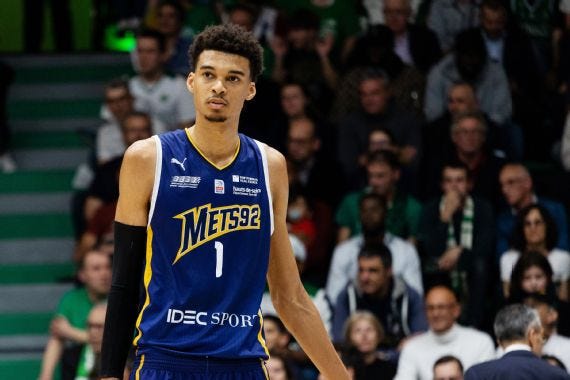Two different cities, two similar people.
Thoughts on density, the rise of remote work, and French basketball phenoms.
Topics:
The socioeconomic implications of remote work
Urban design in a changing landscape
Our cities are in a period of flux, and today’s adaptations will shape tomorrow’s reality. Take our dormant downtown offices, for example…the modern concept of "the office" didn’t rise to popularity until the 19th century, but it came to dominate 20th century urban life. Now, in a potentially post-office world, we face an important question.
Do we build towards an unshackled digital future, or is a return to the office inevitable? Should we invest in mass transit to serve denser communities or faster broadband for the remote diaspora? How do cities respond to our changing perceptions, definitions, and needs?
It’s a complex equation, especially when those needs are inconsistent. While some businesses struggled to adapt to remote work, others have capitalized on “the new normal.” From digital nomad visas to pod hotels, a newly mobile creative class is driving cultural and economic shifts on an international scale.
Dozens of articles have heralded the death of cities, but some cities—like Salt Lake City, Utah, and Columbus, Ohio—have seen more activity this year than they did prior to the pandemic… meanwhile, on the other end of the spectrum, an influx of remote workers can change small-town life for the worse by driving up the cost of living and throttling limited local infrastructure.
So which future do we build for? Whose dream do we develop? We stand at a crossroads, with nothing short of the future on the line.

Read more:
Shift to Remote Work Puts Pressure on Chains Like Sweetgreen
This Venice Beach pod hotel wants to make sleeping in a box chic
Pandemic Recovery Trajectories across 63 North American Cities
This week’s notes from half-court…
Everyone is hyped about Victor Wembanyama, the 7’5” basketball phenom from Nanterre, France. I wish him luck, but his story reminds me of Frédéric Weis… Weis is now a successful and energetic commentator, but he used to be widely known as the victim of Vince Carter’s dunk of death.
He’s led a troubled life, partly because of the pressure-cooker of pro basketball and partly because of his own personal struggles, like having a child with autism. The story of Frédéric Weis is hard, but ultimately redemptive. It’s worth looking into, even if you’re not a huge basketball fan.







